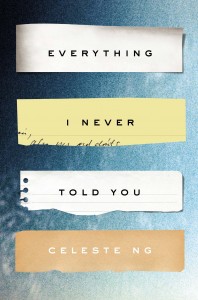Freshman year of high school, my English teacher introduced me to a term I had never heard before: catharsis. According to him, catharsis came from that feeling you get when you read a tragedy and cry. It was a natural process of feeling emotions that you didn’t give in to–you might be sad about school, but you would not cry about it. Instead, you would read a tragedy, and cry for the people in it who died. According to my teacher, this was good.
I thought he was an idiot.
For the past 3 years, the thought of catharsis has weighed on my mind. I’ve never enjoyed reading Shakespeare, I’ve never understood the reason for tragedy. Instead of crying, all I could think was what a waste of time it was, to be reading these stories. There’s no point–in my mind, if you needed to cry, you would. It does not require studying the deaths of fictional characters in order to feel emotion. And besides, what good would crying do? Crying does not solve your problems. Crying does not change your C to an A. Like I said–I believed wholeheartedly that my teacher, and his firm believe in catharsis, was wrong.
I was an idiot.
Recently, I finished reading Everything I Never Told You, written by Celeste Ng. Description-wise, it’s nondescript. The cover is not distinctive, the size is average–nothing to suggest the underlying emotions present within. The story features the Lees; a mixed race family living in a time when such families simply did not exist. Ng explores the relationships between every character, an understanding look at the co-dependency between family members. She was, for what must be the first time in history, able to nail down with perfect words what is unspoken between mother and daughter, sister and brother; the words that no one has ever before voiced.
Tragedy is the underlying emotion of the entire novel, but it is not the sole emotion. Like a skilled surgeon, Ng is able to carefully dissect for the reader’s viewing each and every relationship present within the novel, and portray it in an understandable way. She details the events leading to Lydia Lee’s death, the reason why Hannah is silent, and Nath’s unspoken anger towards his father. Ng even goes back in time, explaining to the reader how the family came to be–how James married Marilyn because she blended in and how Marilyn married James because he stood out.
There is a strange relatability present in Everything I Never Told You. Being half-Asian myself, it’s easy to understand James’ desire to blend in, to look a little more white, and to be a little less different. It’s also easy to want to be like Marilyn- to want to stand above the crowd, to want to be that much more different than everyone else, that much better. And I’m sure all of my classmates can understand Lydia’s feelings and her desire to be exactly what her parents wanted for themselves. In fact, every single person who marches out onto the pages is one more aspect of an often unnoticed part of us.
If you are in the mood for a good cry, read Everything I Never Told You. If you hate crying, read Everything I Never Told You. If you are a robot who does not even understand the meaning of the word “emotions,” much less “crying,” read Everything I Never Told You. You will not regret it. For the first time in what must be years, I got a little sad that I would have to return this book to the library when I was done, and then a lot happy that it actually belongs to me, and I will never have to return it. Trust me–if a book can give you the instantaneous feeling of wanting to read it again, it’s a keeper. (I was actually disappointed when I turned that final page. It was a hard thing to accept).
I am a junior in high school. Logically, I should be devoting all of my time to finishing homework, and keeping my grades as high as they can be. After all, I’ve only got a couple of months left until I begin the college application process. Instead I find myself in my bedroom at 5:00 in the afternoon crying over people that don’t even exist. I think back to the word “catharsis” and finally look up the definition that I have, for years, ignored. “Catharsis: the process of releasing, and thereby providing relief from, strong or repressed emotions.” And I’m suddenly sure that I understand what my teacher meant all those years ago, when high school was still brand new. Crying does not solve anything, that’s true. But it can make you breathe easier, and focus a little better. And sometimes, you’re not even aware that you need to cry. Everything in my life is going great, why would I need to cry? But it is a freeing feeling, and has led me to realize several things, but one being the most important:
Mr. Trotter, you were right. I apologize for calling you an idiot in my head all those years ago.
-Raelyn Browning

This sounds fantastic! What a beautifully-written review 🙂 In English with Mr. Trotter we finished the unit about catharis a couple months ago so I can definitely relate to how it sort of doesn’t make sense to purposely make yourself cry by reading a book, but your review kind of gives me an idea of how that could actually work in real life.